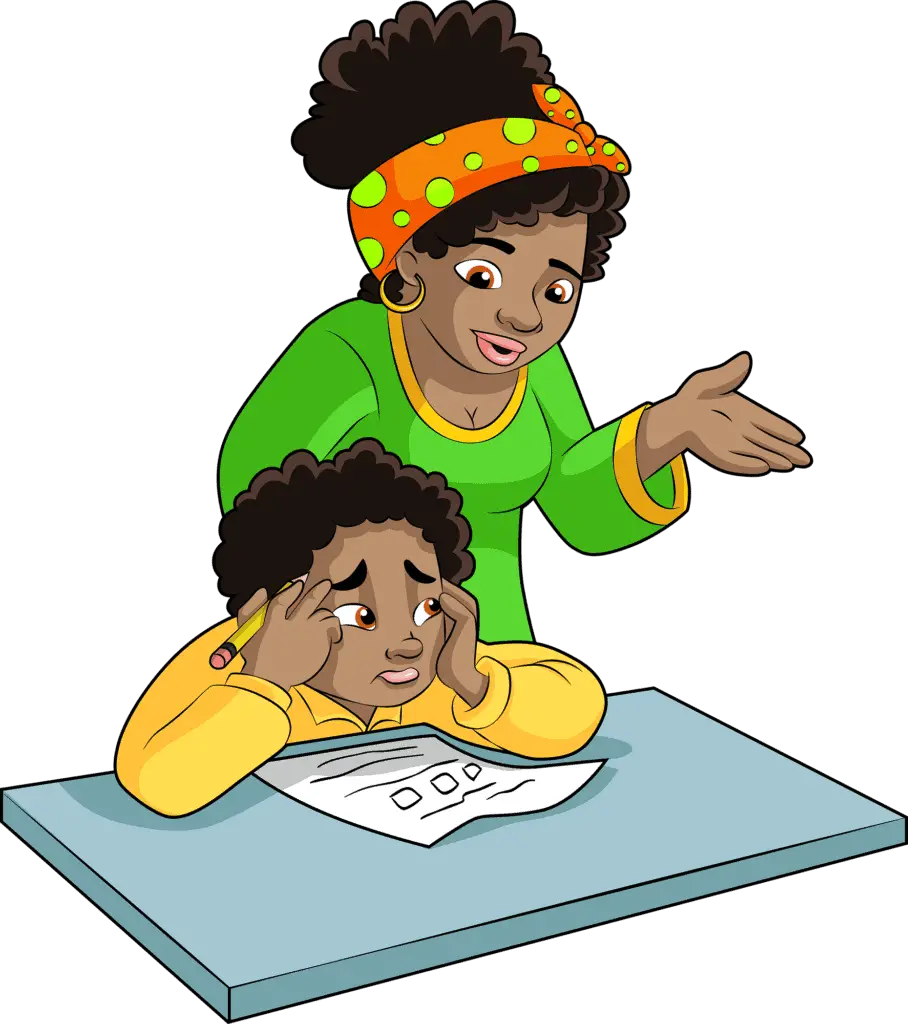
Bilingual Americans get asked many questions about what it is like to speak a second language fluently: “Do you dream in that language?” to “Do you ever worry about losing your native language?” While most multilingual individuals will find it easy to answer the first question, it may not have occurred to them even to consider the second. Is it even possible for someone to replace their native language with a second one?
According to Monika Schmid, the leading researcher of language attrition, it is possible for your second language to replace your first language, at least partially. For the most part, language attrition results from a competition for dominance that goes on in the brains of multilingual people.
Don’t worry; learning another language is not going to render you incapable of speaking English fluently. But Schmid’s research on language attrition does explain why sometimes, for the life of me, I cannot remember certain words in English.
Contents
- 1 Can a Second Language Replace Your First Language?
- 2 Language Attrition
- 3 Factors that Contribute to Language Attrition
- 4 Language Attrition in Different Demographic Groups
- 5 How to Prevent Language Attrition
- 6 What if It’s Not Language Attrition?
- 7 Pros of Language Attrition and Language Learning
- 8 Cons of Language Attrition and Multilingualism
- 9 The Final Talking Point on Can a Second Language Replace Your First Language
Can a Second Language Replace Your First Language?
If you learn a second language as an adult, it is possible that certain aspects of your second language will replace your first language, causing you to lose your native grammar instinct or even forget some basic vocabulary.
Most adult dual-language speakers will never completely lose their ability to speak their mother tongue, but they will also never speak their native language the same way again; this is because learning a second language literally alters the way your brain works.
According to Dr. Monika Schmid, “The minute you start learning another language, the two systems start to compete with each other.”
As your two languages battle over dominance in your brain, your second language will sometimes win a battle causing you to “lose” that aspect of your first language. Most likely, you still retain that part of your native language, but it is no longer dominant, so it will take more work for your brain to recall what’s been replaced. This expresses itself in many ways and is called language attrition.
Language Attrition
Language attrition is officially defined as the reduction, weakening, or loss of a language by an individual or community. When attrition occurs in your native language, it is called first language attrition.
Symptoms of first language attrition generally include:
- Difficulty remembering certain words: Often, bilingual people will express that certain words are “blocked” by a word from their second language, making it difficult or impossible to retrieve the word from their native language.
- Loss of fluency: It is common for people to experience disfluency when they first return to an environment where their native language is spoken. They will exhibit patterns similar to those of language learners, including repetition, self-correction, and the use of pause phrases like “um.”
- Use of odd grammatical constructions: For example, someone from a German-speaking environment may say, “Know you where the books are?” instead of, “Where are the books?” because they have adopted a German sentence structure and applied it to English.
- Development of a foreign accent: No, your friend who came home from their time aboard in France is not being pretentious; they have simply experienced language attrition. To pronounce things in a foreign language, we change our mouth’s movements. Changing back to the native movements may take time, and, in the meantime, a dual-language speaker may speak with an accent.
- Feeling like a foreigner when you speak your native language: Even if outwardly you aren’t making any strange mistakes, feeling like your native language is somehow foreign is a symptom of language attrition; this is also very common among people who have lived abroad for extended periods.
These symptoms are those commonly expressed by bilingual adults. We’ll explore a little more about how and why language attrition impacts different demographic groups below, but first, we have to talk about what contributes to language attrition.
Factors that Contribute to Language Attrition

Not all dual-language speakers will experience the symptoms described above because several factors contribute to and cause language attrition. These factors include:
- Age: The younger you are when you learn your second language, the more likely you will experience higher levels of language attrition.
- Setting: If you use your second langue at work or school, you are more likely to experience language attrition, especially in association with your field.
- Emersion level: If you spend a lot of time speaking to native speakers of your second language, you are more likely to experience first language attrition.
- Trauma: Adults who experience trauma in their first language are more likely to replace it with their second language.
- Acculturation: Dual-language speakers that adopted the culture associated with their second language were more likely to exhibit first language attrition.
- Attitude: People who enjoy speaking their second language are more likely to experience first language attrition than those who do not.
Nearly all of these factors either contribute to or detract from the language dominance you acquire in your second language.
The more dominant your second language becomes, the more likely you are to experience first language attrition.
Language Attrition in Different Demographic Groups
We have already talked about the generalized symptoms of first language attrition and the various factors contributing to attrition. Now, we will combine these discussions, exploring how language attrition is expressed in different demographic groups.
Language Attrition in Young Children
It is relatively common knowledge that young children are most able to learn new languages. I’ve written about this here also. That’s why so many bilingual couples will teach their children both languages simultaneously, and the kids can soak it up like a sponge. But kids are also the most able to unlearn a language by replacing their first language with their second language.
According to linguistic research conducted by the University of Essex, children are vulnerable to language change up to the age of 12.
The phenomenon of language attrition at a young age is common among international adoptees. Studies have shown that children as old as nine can completely forget their mother tongue when they are adopted out of their birth country.
However, it is more common that a child will retain enough of their original language to use it later in life. However, they will likely have to “re-learn” aspects of it and use it in ways more typical of foreign language learners.
Language Attrition in Adults

If you learn a second language after turning 12, chances are your native language is stable and will be quite resistant to replacement; this is why attrition will likely be limited to specific things such as grammar, vocabulary, fluency, or accent.
As was already mentioned above, in adults, attrition results from the competition between languages taking place in your brain. At any one given time, all the languages we speak are “active” in our heads. The more attention we give one language, the more dominant it becomes, making it the loudest in our head; this leads to the language “blockage” some multi-language speakers experience when switching to their native language.
Choosing a Language to Use
To illustrate what’s going on inside a bilingual person’s brain, imagine looking at an object. That object has two names in a bilingual person’s mind. For example, a bottle may be a “bottle” but also a “flasche” (the German word for “bottle”). Therefore, when a dual-language speaker looks at a bottle, their brain must decide what name to call it by.
If they are struggling with language attrition, their brain will probably insist that the object is called a “flasche” and they will have to really struggle to make “bottle” come to the conscious part of their brain.
Basically, they will have to force the English-speaking brain to scream louder than the German-speaking brain because the German-speaking brain has taken dominance in that instance.
The good news is this type of language attrition is easily reversible; it simply requires you to condition the “switch” in your brain that allows a multilingual to switch between languages. We’ll talk more about that in a bit.
Language Attrition in Refugees
This may seem like an oddly specific demographic, but there is a reason for separating refugees from regular adults or children. Going back to our previous list of factors that contribute to first language attrition, we mentioned the role of trauma in language replacement.
Monika Schmid, our resident expert on language attrition, happened to analyze the German abilities of German-Jewish World War II refugees who fled to the United States. She discovered trauma, more than any other factor, influenced how much German they retained.
Those who left before the worst of Nazi cruelty tended to speak better German, even though they had been gone the longest. In contrast, those who escaped direct persecution, in the concentration camps or ghettos, spoke little to no German.
This is because, as Schmid points out, how we feel about a language plays another significant role in how we learn or maintain it. If you have bad memories attached to a particular language, you are more likely to suppress that language to banish flashbacks. Over time this leads to a higher level of first language attrition among refugees.
Discouraging the Use of Native Languages

Additionally, immigrants are often encouraged not to speak their native language. The prevalence of discrimination and verbal abuse towards immigrants who speak their native language publicly often inadvertently incentivizes language attrition because assimilation is directly tied to an immigrant or refugee’s ability to speak their host country’s target language.
Language Attrition in Elderly People
Measuring the extent to which language attrition in older adults is related to the competition between existing languages is difficult because a new factor enters: dementia.
In many ways, the language attrition caused by language replacement can appear similar to how dementia impacts an older adult’s language, so it can be exceedingly difficult to study. Several myths about language attrition among the elder have come to life, only to be debunked in recent years.
While the symptoms are often the same, searching for words, speaking in weird syntax, most elderly dementia patients are actually suffering from language disintegration instead.
Language Disintegration
Language disintegration occurs when people who have dementia or Alzheimer’s begin to forget their language completely. It can occur in monolingual as well as multilingual individuals.

For bilingual people, language disintegration may not affect both of the person’s languages, leaving one or the other mostly intact, which is why it is easily mistaken for language attrition.
Linguistic Evolution
Additionally, some elders may attribute to language attrition what linguistic evolution can explain. In this situation, a grandparent might feel lost in a conversation with their grandkid because the young person is using new words or meanings they haven’t been exposed to.
For example, if you told your grandpa, “Hey, the cat just yeeted herself,” Your poor grandpa would have no idea what you mean, and that’s because you’re the one speaking a foreign language—not because he’s mentally incapable.
The point being, it is hard to determine if language attrition expresses itself differently in the elderly than it does in younger adults, and the linguistic community still has some research to do in this area.
How to Prevent Language Attrition
So, now that we know why attrition affects multilingual individuals and how it might express itself among different demographic groups, let us switch gears and talk about some strategies that bilinguals can use to reduce or reverse the impact of language replacement.
But first, a note from Dr. Schmid: “[Language] attrition is not a bad thing. It’s just a natural process. These people have made changes to their grammar that is consistent with their new reality…Whatever allows us to learn languages also allows us to make these changes.”
In other words, language attrition is entirely natural and certainly not something to be ashamed of, but we get it. It feels terrible to struggle with your native language, which can leave you feeling exasperated.
The following strategies are meant to help you re-replace your native language to dominant status and control the language fighting in your head.
Strengthen the Switch in Your Head

We briefly mentioned that multilingual people develop a “switch” in their heads that allows them to toggle between languages as needed.
If that switch is weak, your secondary language may try to shout things at you while you’re using your native language. It can also result in what we call a “stall out,” which is when, for a brief second, no language is dominant, and your brain just kind of goes black.
For the most part, your internal switch will strengthen over time and will respond accordingly to the environment it’s in, allowing you to suppress the non-target language. Still, some circumstances can inadvertently trigger your switch:
- Dreaming in your second language: Have you ever woken up after dreaming in your second language and then spent the rest of the day struggling to find the right words in your native tongue?
- Overhearing a conversation in your second language: This can throw you off, too, so stop eavesdropping!
- Acting as a translator: This forces you to switch back and forth frequently, and if your switch is weak, it can be overwhelming.
- Thinking about something you learned in your second language: Your brain will naturally try to recall information using the language you learned it in, leaving you feeling like you have to translate your own memory.
To strengthen your switch, you will want to pay attention to triggers that might cause your brain to switch.
Avoid Speaking Language Hybrids
If you live with other bilingual people or happen to share the same pair of languages with your best friend or spouse, you may find yourself speaking some kind of weird hybrid language, like: “Oh, hey honey, pass me the Fernbedienung (remote)…”
This phenomenon is also popular and common among large groups of people who inherently share the same combination of languages. “Spanglish” is common among Latin Americans, for example.
It may be efficient to just use the word that pops into your brain first, regardless of which language your conversation is actually in, but Dr. Schmid says this could contribute to language attrition if you keep it up.
Forcing yourself to actually think of the word in your native language will prevent it from being replaced.
Speak Your Native Language with Native Monolinguals
Even if you’re living abroad, try to find time to speak your native language with native monolinguals, perhaps by Skyping your parents or friends back home once a week.

Chatting with native monolinguals will help you maintain your native language and continue to refresh your memory of native speech patterns, sentence structures, and colloquialisms so they aren’t replaced.
It will also prevent you from missing out on any linguistic evolution that may take place while you’re aboard. We’d hate to see your native language “yeeted” for sheer lack of exposure to new words.
Have a Native Speaker Proof Read for You
When writing, you may actively struggle against the urge to switch to your second language. That constant battle may result in the presence of odd constructions, misplaced commas, and even misspellings influenced by your second language.
This is why we highly recommend having someone who isn’t battling their languages (or at least not the same ones) proofread your papers. They’ll be able to spot the bad habits you may have picked up and point them out to you.
Having someone point out how your second language is trying to replace your first language will help you consciously work on reversing language attrition.
Use Your First Language Actively (Too)
Don’t forget to utilize your first language as well. Sometimes we’re so motivated to use our second language, or non-native language, that we neglect the language we first learned.
You can engage your first language actively by incorporating the same things you used to acquire your non-native language. Read, listen to music, watch TV shows and films and so on- all in your first language, too.
It might be easier to manage multi-languages if you have a routine. I recommend subscribing to your home town newspaper and reading it every day or week. Or have a podcast that you always listen to in your native language.
If you like puzzles and brain games, then perhaps do word searches or cross word puzzles in your native language. If English is your native language, for example, then something like Funster Crossword Puzzles for Adults is an excellent option.
Doing something consistent in your native language will reinforce it and limit attrition.
What if It’s Not Language Attrition?
Several other phenomena could cause you to feel like a foreigner in your own native language. It’s essential to identify them in our discussion of language attrition so you can properly discern them from language replacement.
Maybe You Were Just Left Behind
Language develops quickly and is also very regional, which means you can be left behind if you aren’t keeping up with the pace of language evolution. As we described above, this can happen to older adults pretty easily, but also to people who spend a significant amount of time away from home.
To offer a quick definition, language evolution is the change of language over time. It’s also sometimes referred to as “linguistic drift” and encompasses both the creation of new words and new uses for existing words, among other things.
When we are abroad for a long time, our understanding of our own native language gets stuck in time because we aren’t actually using it or being exposed to the new changes. When we return from abroad, and our friend says something along the lines of: “Spill your tea,” you are probably left wondering, “What in the heck are they asking me to do? I don’t even have any tea!”
That feeling can make you feel foreign in your own language, but in this case, your first language wasn’t replaced; it just updated itself while you were gone.
Maybe You Missed that Lesson in Your Native Language

When we spend vast amounts of time abroad speaking our second language, we are bound to learn new things in the context of that language. Anyone who has studied abroad or taken a job abroad can attest to this.
You may actually learn new terms in these situations without having ever learned them in your native language, meaning you will actually have to replace your second language with your first language by learning these terms, fresh in your native language when you return.
For example, suppose you train for a highly technical job, like an airline mechanic. In that case, you will likely learn a lot of very specific words for airplane parts in your second language, without ever even considering what they might be in your native language.
That means, when you return home, you will purposely have to study these vocabulary terms in your native language to overwrite what you have learned in your second language. In this instance, you will actually be forcing yourself into second language attrition.
Pros of Language Attrition and Language Learning
Most of the experts who study linguistics will agree there is no wrong way to speak your native language.
Multilingual brains are generally working harder than monolingual brains because we have to continually select a target language, repress the urge to switch, and judge which language is appropriate to use based on our current situation. To read more, I’ve written an article here about the effects on the brain and I.Q. of being multilingual.

We also have to work to reverse language replacements caused by language attrition, which is like an exercise routine for your brain. This extra brain activity has some pretty nifty advantages. For example:
- Empathy: If you’re good at suppressing competing languages to think a certain way, you may also be better at suppressing your feelings and beliefs to concentrate on someone else’s perspective.
- Better control of the executive system: According to Psychology Today, the executive system allows us to block out the other background processing our brain does to direct more attention to the task at hand.
- Delayed dementia: Due to the mental flexibility inherent in multilingualism, dementia appears, on average, five years later than in monolinguals. Even then, multilingual people exhibit slower disease progression.
Cons of Language Attrition and Multilingualism
There are tons of memes dedicated to capturing the multilingual experience, most of them focusing on the little frustrations that bilinguals encounter when their second language becomes more dominant.
Upon closer inspection, you may begin to realize a pattern. Most of the frustrations that multilingual people tend to commiserate about stem from language attrition. In fact a few could be taken straight from the list of symptoms described earlier:
Difficulty Finding the Right Words to Use

This annoying occurrence is directly related to the phenomenon of word replacement associated with language attrition, and it tends to hit at the most inopportune times.
If you find yourself struggling to find a word, it is recommended first to try to find it on your own. But if you’ve spent minutes searching for that word in the depths of your brain and it still refuses to surface, we recommend giving up and plugging the word you do know into Google Translate. This will save you time and prevent you from giving yourself a headache.
Stalling Out
Stalling out occurs when the fight between your two languages results in an internal draw and you’re left with no functional language to use so you just go blank until you can will one of your languages to take control.
Each multilingual person has their own coping mechanism to help restart their brain. Some will memorize a favorite movie quote to recite in their target language to force one language to assume dominance and get their brains back online.
Fatigue

Being bilingual or even multilingual can be exhausting because your brain is constantly engaged, trying to judge which language you should use to speak, listen, read, write, or dream in—functions that most monolinguals take for granted.
It is also taxing to continually feel anxious when speaking your native language because it requires you always to be scanning for mistakes or trying to correct yourself. You might pause a lot due to the struggle against language attrition that is secretly going on inside your brain.
Bottom line, this fatigue is normal, and you don’t need to fight against attrition constantly. Sometimes it is valid just to exist as a multilingual person and let your brain think in its own, unique combination of languages.
The Final Talking Point on Can a Second Language Replace Your First Language
Being able to speak multiple languages is a gift, even if it means aspects of your native language will be replaced. Language attrition is a natural part of learning a second language, but it can be reversed with a little extra mental effort.
Like with most things, language attrition will affect every multilingual person differently and impact some of us more than others based on our age and life experiences.
